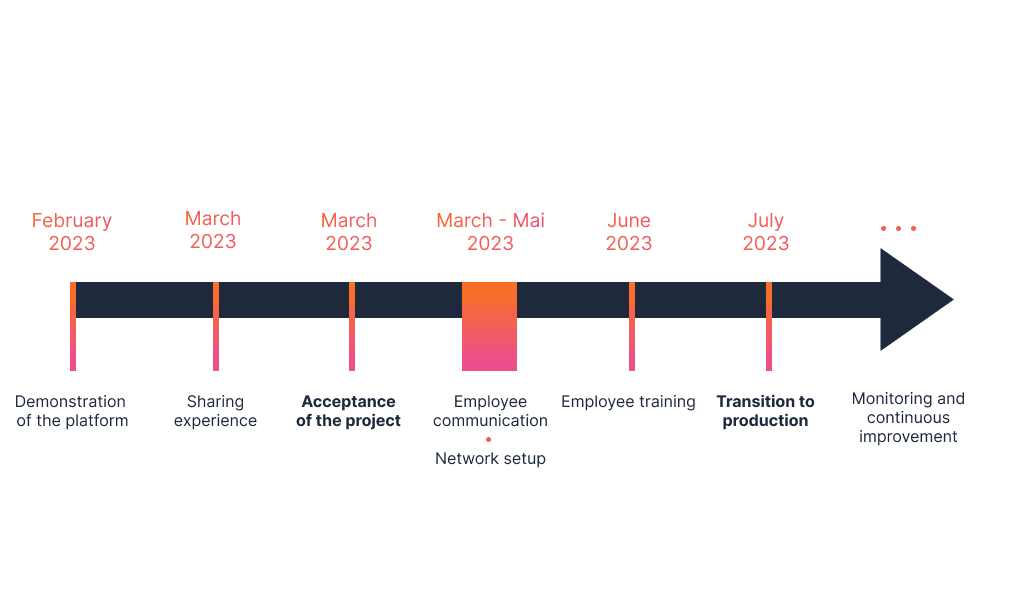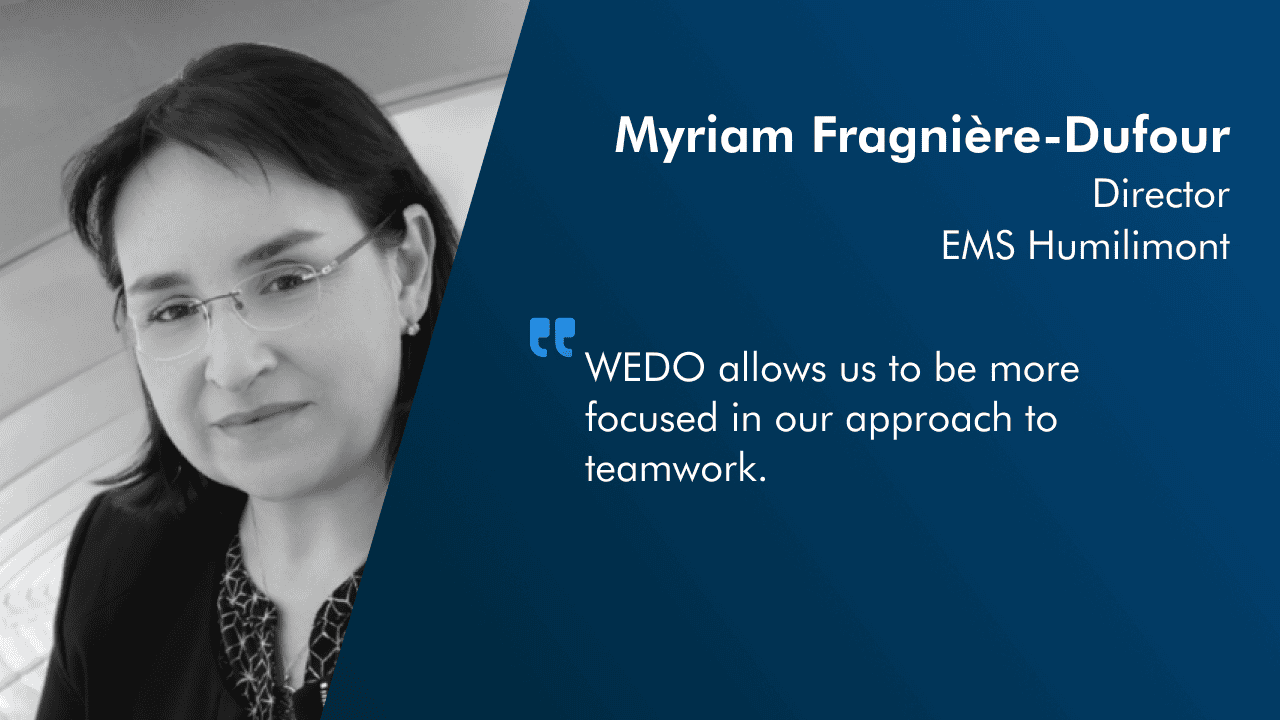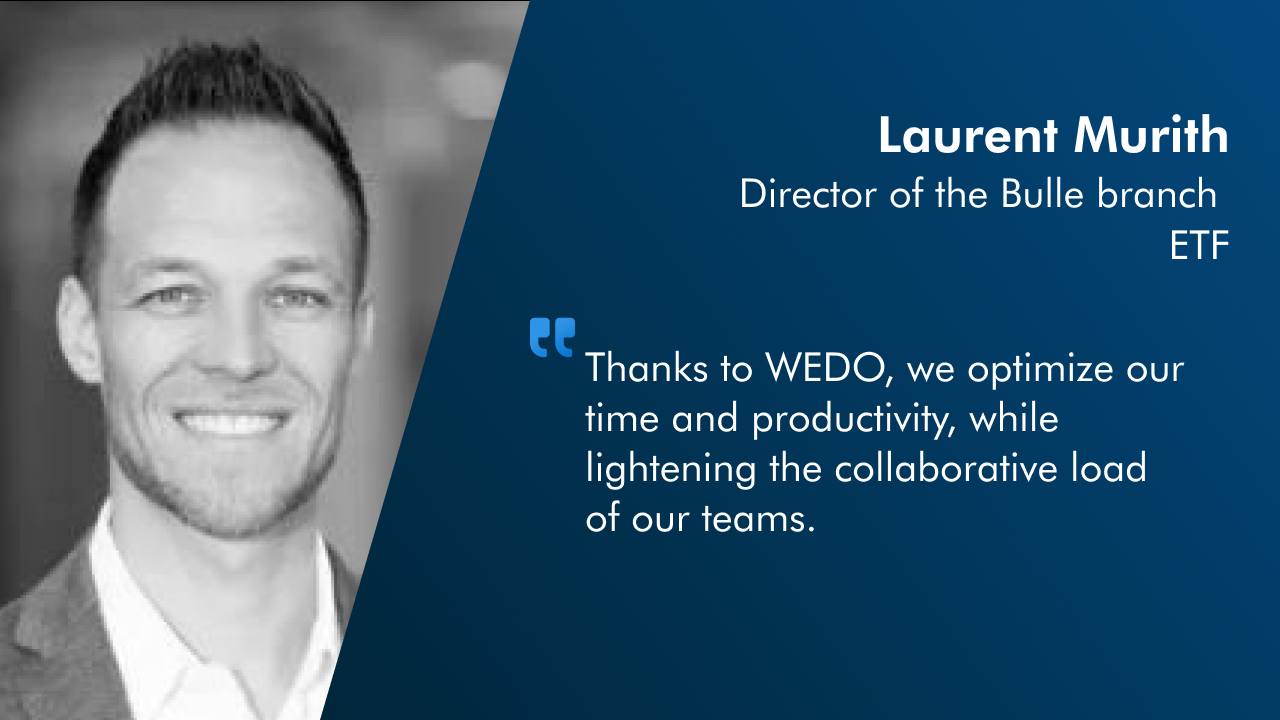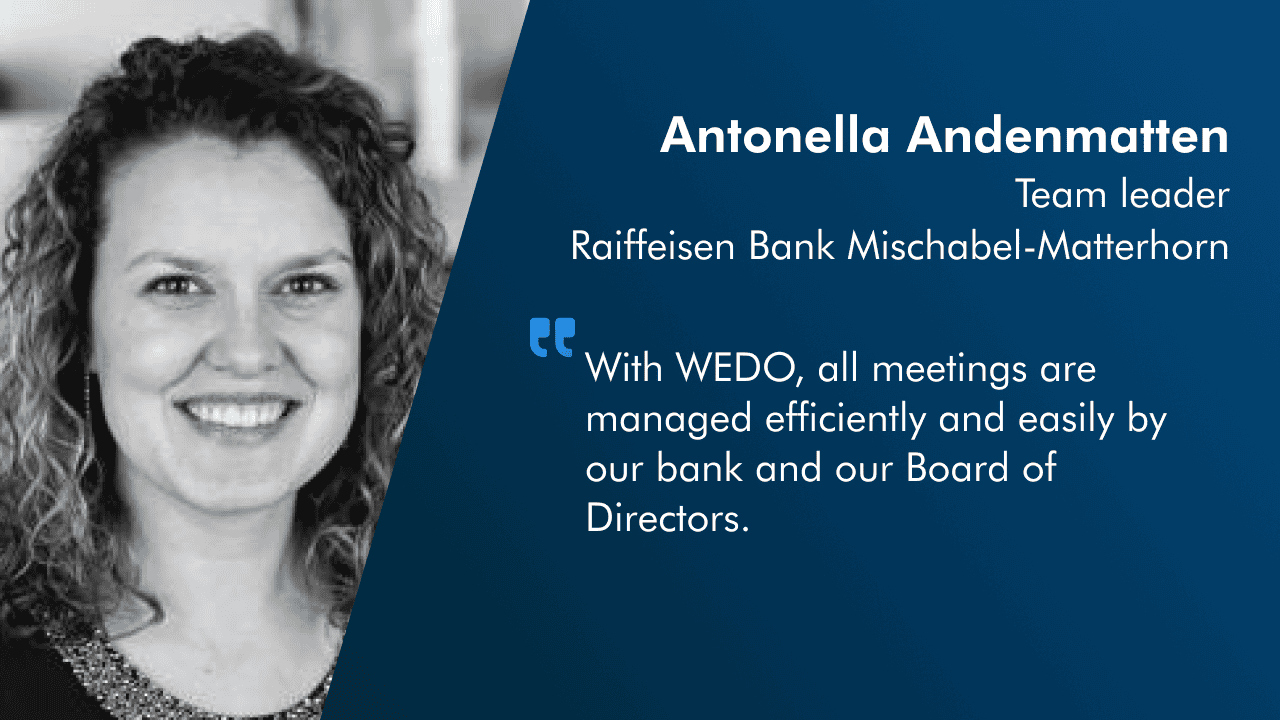Public administration productivity and digitization have become key issues in the ever-changing landscape of municipal administration. Faced with this revolution, efficient task management, streamlined processes, and practical information management are significant challenges.
In this article, we explore the challenges of municipal digitalization. We delve into the experience of Loïc Blardone, secretary of the Saxon commune (VS), as project manager and user of the WEDO collaborative platform. This exploration will demonstrate the significance of technology in modernizing local governance. It will cover various aspects such as setting up secure cloud-based software and addressing digitalization challenges.
What were the municipality's main managerial challenges before adopting WEDO?
Before integrating WEDO, our gaps and needs were mainly related to the traceability of tasks and requests. We had to overcome numerous challenges posed by processes that were dependent on employees' memory and needed to be documented.
In addition, managing large volumes of documents, information, and requests from various sources (postal mail, e-mails, citizen requests, and inter-institutional requests) was becoming increasingly complex to process and catalog.
Finally, we needed a municipal software solution enabling us to track Public Works requests efficiently, particularly for the Buildings Department, which manages stewardship issues that absolutely cannot be left to chance.
What were the major challenges in implementing the management software?
First of all, it was important to determine who would use the platform. We wondered, for example, whether it would be more appropriate to include only the administrative department or whether external services should also be included. In addition, it was essential to predict the platform's usefulness for each role to understand the interest of employees and their level of acceptance of the project.
To ensure optimal support and that everyone felt involved, we included all staff who had to manage administrative tasks, i.e., 35 employees. These include:
- the administration (Population Office, Finance Department, Technical and Building Services)
- the director and the deputy director
- the librarian and the members of the school and after-school services
- the public works manager
- the heritage delegate
- the socio-cultural or integration coordinators
- the building service managers
- the technical staff
- members of the Municipal Council
Some feared implementing an additional digital tool would harm human exchanges within the office, giving way to strictly notification-based communication. However, the "e-mail as a task" feature offers a solution that enables tasks to be assigned while maintaining a human aspect of communication. It allows an e-mail to be sent in a conventional format while simultaneously creating a task for the corresponding person or department.
This option is also convenient for avoiding tedious handling. For example, when an e-mail needs to be replied to with an acknowledgment of receipt and forwarded to a department, a task can be generated in parallel.
However, the major challenge remained getting users on board, especially those less familiar with the technology. The key to success was communicating the usefulness of the platform and its management modules for each sector of activity.
How did you go about implementing the WEDO platform?
There were several key stages in getting WEDO up and running:
1. Platform demonstration
The project began with a product presentation by the WEDO team directly on our premises.
2. Discussions with a municipality using the WEDO platform
We spoke to employees of a local authority using the WEDO platform to find out about their opinions and experiences.
3. Project acceptance
The project was officially accepted. We appointed project managers and selected future users with the help of the WEDO team.
4. Preparation and training
We prepared checklists of our various procedures in Excel format in advance to integrate and automate them in WEDO. The network configuration (tasks, checklist, and meeting modules) was carried out in the presence of our WEDO consultant to ensure a solid environment customized to our needs.
5. Communication to employees
Future users were informed by e-mail of the imminent implementation of the WEDO platform. We communicated about its usefulness in day-to-day operations as well as the integration process. We instructed them to create checklists for their projects using a template. This would help them prepare to begin their own workspaces.
6. Employee training
Our WEDO consultant organized a mandatory training course delivered remotely in groups or face-to-face. The training lasted 1 h 30 and covered task management, workspaces, checklist templates, and meetings.
7. Production start-up
The project went into production, and WEDO became a daily tool for task management.
8. Ongoing monitoring and improvements
We maintained communication with users to encourage them to explore WEDO further and achieve a 100% discovery rate. The tool has a fun way of evaluating the exploration of the platform. What's more, employees have access to a support service to answer any questions.

Right from the start, feedback from our employees was highly positive. They learned how to use the tool and could try out its features individually after the training sessions.
After just a few months of use, what impact has WEDO had on your teams' productivity and on the commune's managerial challenges?
Adopting WEDO has revolutionized the way we manage day-to-day business:
-
The platform gives us rapid access to the status of current requests. It has significantly reduced the time it takes to search for information.
-
It enables efficient communication between players and sectors, allowing public works projects and requests to progress more quickly.
-
The transmission of tasks and recurring processes is facilitated, such as the delegation of tasks from the Communal Council to departments, the management of incoming mail, requests to technical services, or the submission of requirements from users of communal buildings.
-
We were able to immerse ourselves in a more pragmatic vision of project management.
-
With WEDO's meeting module, some municipal commissions can now easily track meeting discussions and the progress of related tasks. They have also been able to standardize minutes and facilitate their sharing.
-
The municipality can now document and automate it's numerous procedures and checklists.
-
The tool was quick and easy to implement.
The idea of implementing a tool like WEDO quickly won me over. Our administration needed to evolve towards a centralized management mode allowing rapid follow-up and ease of use. Today, I'm convinced of our new way of working and would never go back.



